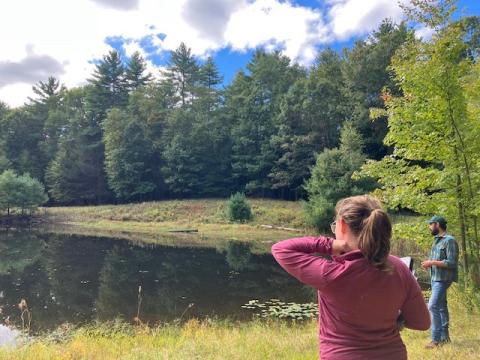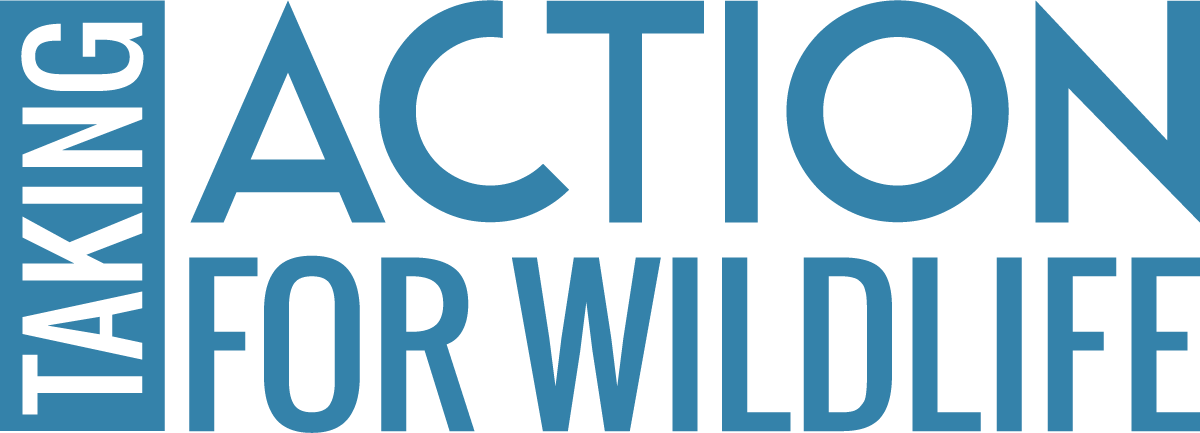Working Lands for Turtles
New Hampshire is home to seven species of native turtles; snapping turtle, painted turtle, musk turtle, spotted turtle (state threatened), Blanding’s turtle (state endangered), wood turtle (special concern), and eastern box turtle (state endangered). You may notice that more than half of these species have some level of state conservation listing. These at-risk turtles face a variety of threats not just here in New Hampshire, but throughout their range in the eastern United States. Loss of habitat to residential or commercial development, road mortality, disease, and even illegal collection have all been ranked as the highest risk to the long-term persistence of their populations. The decline of these species has prompted a petition for federal protection under the Endangered Species Act (ESA) by the U.S. Fish and Wildlife Service (USFWS), with a decision likely within the year.

Creating turtle nesting habitat - open sandy areas near wetlands - is one management practice that can benefit species of concern.
The New Hampshire Fish and Game Department’s Nongame and Endangered Wildlife Program has intensively monitored populations of Blanding’s, spotted, and wood turtles throughout the state thanks to USFWS Competitive State Wildlife Grants, Conservation License Plate funding, and private donations. This funding has also allowed nongame biologists to initiate conservation actions, such as habitat creation or enhancement, land protection, and the development and distribution of Best Management Practices (BMPs). Most of this work was conducted on state-owned lands or permanently protected land trust properties, but privately owned land was an important, missing piece.
The U.S. Department of Agriculture’s Natural Resources Conservation Service (NRCS) came to the rescue with the Working Lands for Wildlife – Northeast Turtles initiative. Funding from the Farm Bill directs incentives to priority at-risk species conservation on private lands. Properties that qualify for incentives include agricultural, tree farm, current use, conservation easements, and any other land with the presence of turtle habitat. Landowners can voluntarily sign up for programs such as the Environmental Quality Incentives Program, Agricultural Conservation Easement Program, Conservation Stewardship Program, and the Healthy Forests Reserve Program which can all provide financial assistance to create, enhance, and manage habitat for turtles. NRCS also offers Wetland Reserve Easements (WRE) for landowners who want to permanently protect their land and associated wetlands. This program provides assistance to property owners for restoration where past agricultural practices degraded wetlands for turtles and other threatened and endangered species. To learn more about these programs and the practices commonly used, visit Working_Lands_for_Northeast_Turtle_web.pdf (usda.gov).

Fish and Game biologists can work with landowners applying for or enrolled in NRCS programs to create, enhance, or maintain habitat for turtle species.
In 2018, the NH Fish and Game Department formally teamed up with NRCS thanks to a grant from the National Fish and Wildlife Federation (NFWF) that funded Fish and Game biologists to provide technical assistance to landowners applying for, or enrolled in, NRCS programs. The grant focuses on at-risk turtle species (Blanding’s, spotted, and wood turtles) within priority conservation areas previously identified. Fish and Game biologists work with the landowner and NRCS staff to identify needed enhancements or restoration on the property, including creating turtle nesting habitat (open sandy areas near wetlands), establishing buffers around wetlands where machinery is seasonally restricted, and safe timing for forestry operations. Fish and Game biologists have provided technical assistance and project supervision to over 50 landowners since the start of this grant and many more to come.
It is important to point out that while turtle conservation is a focus for NRCS in New Hampshire, protecting wetlands and surrounding habitats benefits countless other species of wildlife and plant communities. If you are a private landowner who is interested in turtle conservation, biodiversity, and water quality, consider contacting your local USDA service center to speak with an NRCS conservationist. You can also contact NH Fish and Game turtle biologist, Josh Megyesy at (603) 271-1125, Joshua.megyesy@wildlife.nh.gov to discuss your property’s potential for habitat improvement.

